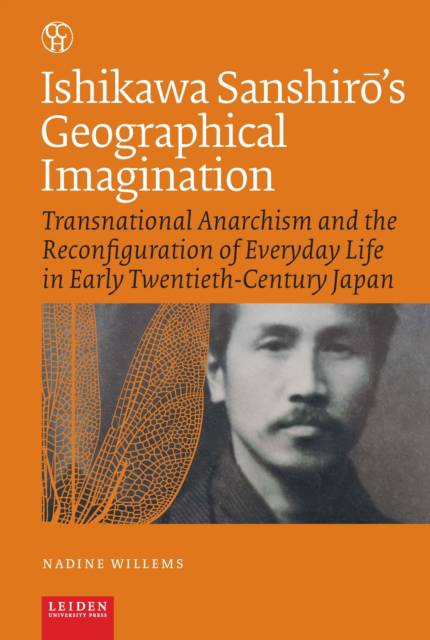
Bedankt voor het vertrouwen het afgelopen jaar! Om jou te bedanken bieden we GRATIS verzending (in België) aan op alles gedurende de hele maand januari.
- Afhalen na 1 uur in een winkel met voorraad
- In januari gratis thuislevering in België
- Ruim aanbod met 7 miljoen producten
Bedankt voor het vertrouwen het afgelopen jaar! Om jou te bedanken bieden we GRATIS verzending (in België) aan op alles gedurende de hele maand januari.
- Afhalen na 1 uur in een winkel met voorraad
- In januari gratis thuislevering in België
- Ruim aanbod met 7 miljoen producten
Zoeken


Ishikawa Sanshirō's Geographical Imagination
Transnational Anarchism and the Reconfiguration of Everyday Life in Early Twentieth-Century Japan
Nadine Willems
€ 55,00
+ 110 punten
Omschrijving
In modern Japan, anti-establishment ideas have related in many ways to Japan's capitalist development and industrialisation. Activist and intellectual Ishikawa Sanshir. exemplifies this imagination, connecting European and Japanese thought during the first decades of the twentieth century. This book investigates the emergence of a strand of non-violent anarchism, reassessing in particular the role of geographical thought in modern Japan as both a vehicle of political dissent and a basis for dialogue between Eastern and Western radical thinkers. By tracing Ishikawa's travels, intellectual interests and real-life encounters, Nadine Willems identifies a transnational 'geographical imagination' that valued ethics of cooperation in the social sphere and a renewed awareness of the man-nature interaction. The book also examines experiments in anarchist activism informed by this common imagination and the role played by the practices of everyday life as a force of socio-political change.
Specificaties
Betrokkenen
- Auteur(s):
- Uitgeverij:
Inhoud
- Aantal bladzijden:
- 292
- Taal:
- Engels
- Reeks:
- Reeksnummer:
- nr. 3
- Geïllustreerd:
- Ja
Eigenschappen
- Productcode (EAN):
- 9789087283438
- Verschijningsdatum:
- 8/03/2020
- Uitvoering:
- Paperback
- Formaat:
- Trade paperback (VS)
- Afmetingen:
- 155 mm x 234 mm
- Gewicht:
- 385 g

Alleen bij Standaard Boekhandel
+ 110 punten op je klantenkaart van Standaard Boekhandel
Beoordelingen
We publiceren alleen reviews die voldoen aan de voorwaarden voor reviews. Bekijk onze voorwaarden voor reviews.










